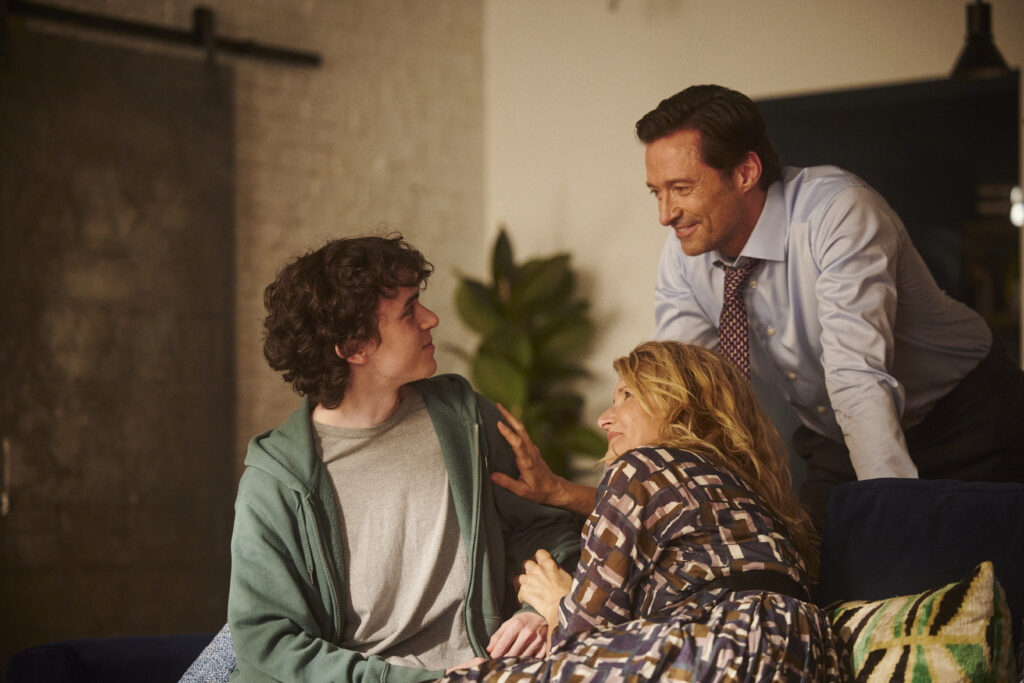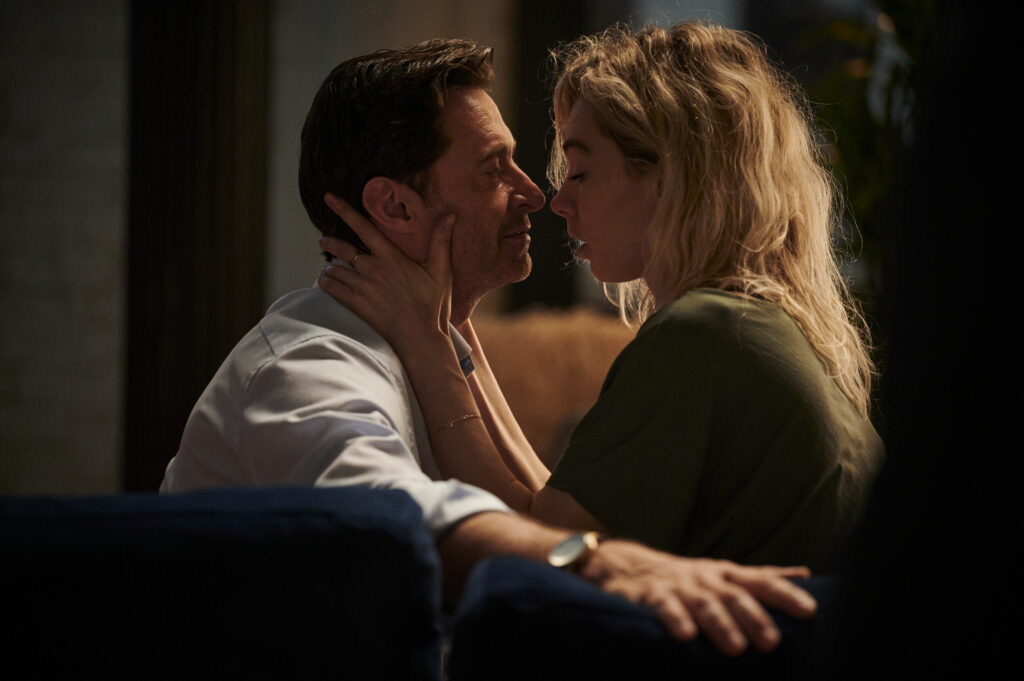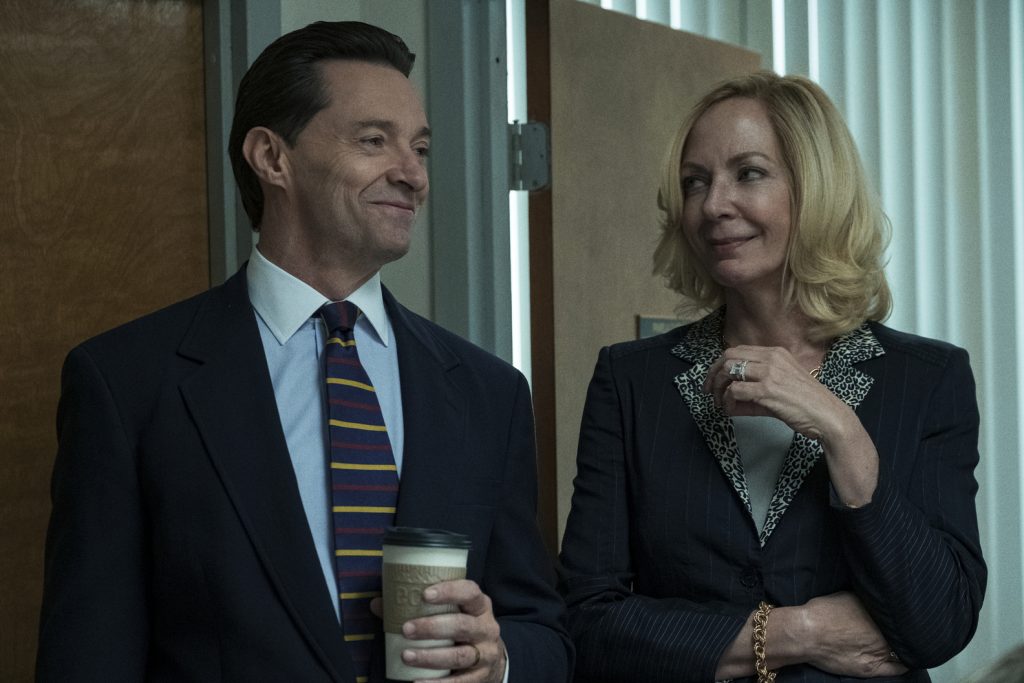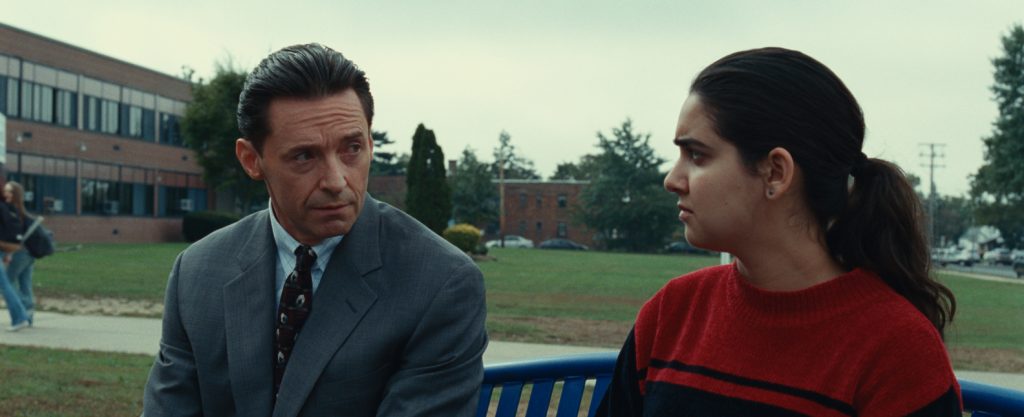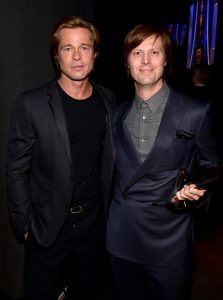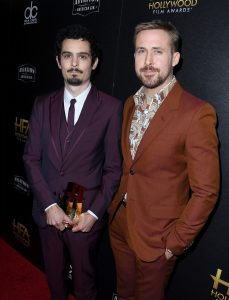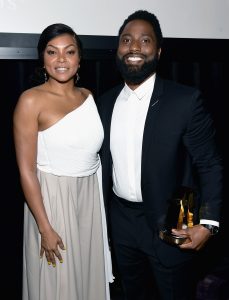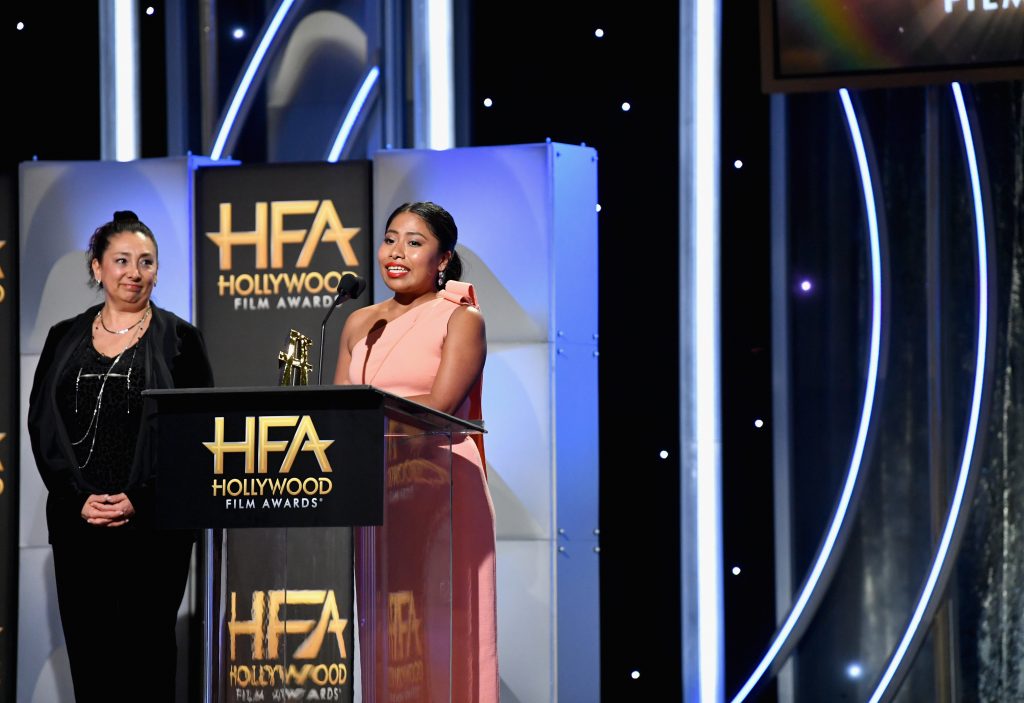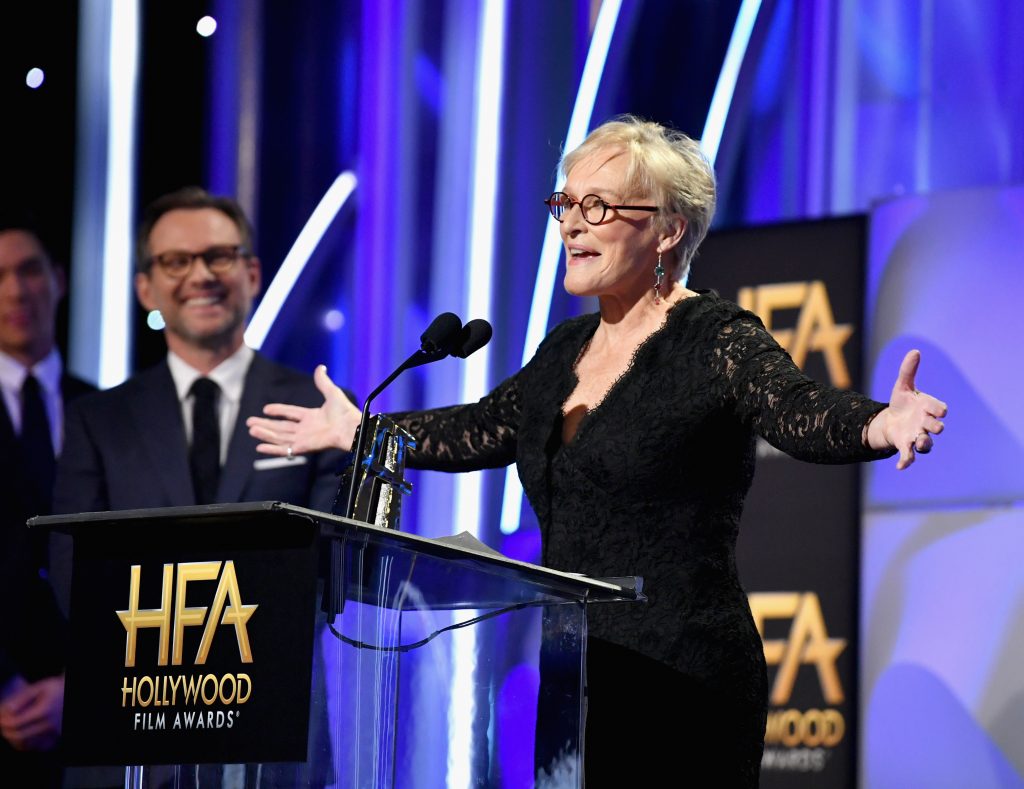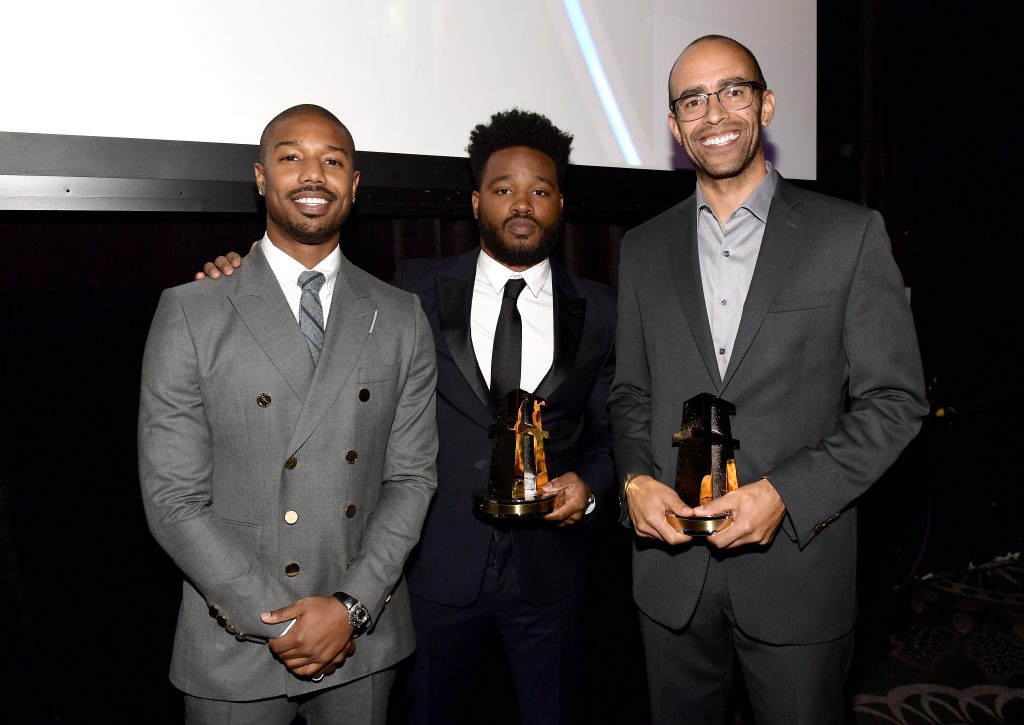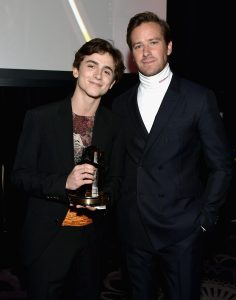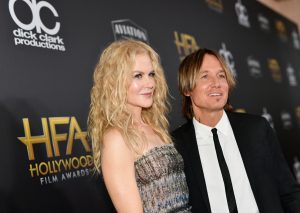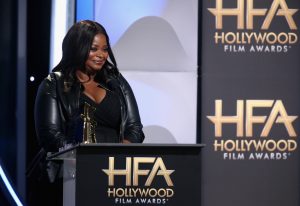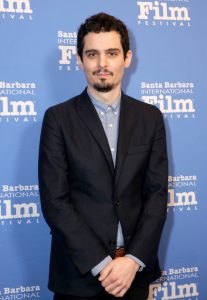July 23, 2024
by Carla Hay

Directed by Shawn Levy
Culture Representation: Taking place in various universes, the sci-fi/fantasy/action film “Deadpool & Wolverine” (based on Marvel Comics is the first “Deadpool” and “X-Men”-related movie that is part of the Marvel Cinematic Universe) features a predominantly cast of characters (with some African Americans and Asians) portraying superheroes, supervillains, powers and regular human beings.
Culture Clash: Bickering superheroes Deadpool and Wolverine team up to stop certain villains who want to make Deadpool’s universe disappear.
Culture Audience: “Deadpool & Wolverine” will appeal primarily to people are fans of the movies headliners, superhero movies and action films that have some bawdy comedy with self-referencing jokes.

“Deadpool & Wolverine” takes a joke-filled grenade and throws it at previous perceptions of the Marvel Cinematic Universe. This hyperactive superhero sequel goes all-in with meta references, surprise appearances, and male homoerotic flirting. There are so many references to previous MCU movies, Disney’s acquisition of 20th Century Fox, executive decisions for superhero movies, and some of the cast members’ personal lives in the real world, it would be easy for anyone not familiar with any of these references be confused or not understand at last half of the jokes in the movie. “Deadpool & Wolverine”(based on Marvel Comics characters) is still an adrenaline-packed, crowd-pleaser for anyone inclined to like superhero movies, even if the movie is overstuffed with “surprises” to bulk up what is essentially a very thin plot.
Directed by Shawn Levy, “Deadpool & Wolverine” is the first MCU movie starring Marvel Comics characters from 20th Century Fox Studios (now known as 20th Century Studios), which was acquired by Disney (also owner of Marvel Studios) in 2019, about two years before the acquisition was announced. As a result, Marvel characters that have had movies from 20th Century Fox, such as Deadpool, the X-Men (which includes Wolverine), the Fantastic Four, Blade, Daredevil and Elektra, are among the characters who can now be part of the MCU. “Deadpool & Wolverine” was written by Levy, Ryan Reynolds, Rhett Reese, Paul Wernick and Zeb Wells.
“Deadpool & Wolverine” is also the first MCU movie to have a movie rating that is recommended viewing for people at or close to adult ages. The movie gets this rating because of the bloody violence and cursing. “Deadpool & Wolverine” also has some sexual comments/innuendos that are intended for mature/adult audiences. Do people need to see any of 20th Century Fox’s previous superhero movies to better understand “Deadpool & Wolverine”? Yes. The best ones to see before “Deadpool & Wolverine” are 2016’s “Deadpool,” 2018’s “Deadpool 2” and 2017’s “Logan.”
In the very beginning of “Deadpool & Wolverine” wisecracking superhero Deadpool (played by Reynolds) is seen digging up a grave in a snowy wooded area. He’s trying to find and resurrect surly superhero Wolverine (played by Hugh Jackman), a human-wolf mutant also known as Logan, who died in the “Logan” movie. Wolverine is one of the main characters in the “X-Men” series of movies and comic books. Deadpool, whose real name is Wade Wilson, is a Canadian mercenary nicknamed Merc with a Mouth. Wade was disfigured by tumor-like scars that he received from being in a hypobaric chamber, and he has superhuman regenerative healing abilities. Wade’s main weapons are his guns and swords, while Wolverine’s main weapons his retractable hand claws that are very large blades.
The meta references in “Deadpool & Wolverine” start from the very first scene. Deadpool can be heard saying in a voiceover about resurrecting Wolverine/Logan: “Marvel is so stupid. How are we going to do this without dishonoring Logan’s memory? We’re not.” There’s an amusing fight scene that Deadpool has with some soldiers the wooded area, where Deadpool dances to *NSYNC’s “Bye Bye Bye.” And then, there’s a flashback to Deadpool’s life in 2018 and in 2024, before he ended up in this fight.
The flashbacks show that Wade has retired his Deadpool superhero persona and is working as a salesperson for a company called Drive Max, which is a lot like the real-life automobile sales company CarMax. Wade is close to a middle-aged co-worker named Peter (played by Rob Delaney), who is also a salesperson at Drive Max. A flashback to 2018 shows that Wade is unhappy in this dead-end job, so he interviews with Happy Hogan (played by Jon Favreau), Iron Man’s former chauffeur, to see if he can get back in the superhero business. Deadpool says he needs to join the Avengers (Marvel’s most famous group of superheroes), but Happy tells Wade that people aren’t Avengers because they need to be but because people need the Avengers.
In 2024, Wade is living with elderly roommate Blind Al (played by Leslie Uggams), who mentions several times that she’s a cocaine dealer. (The cocaine comments in the movie are played for laughs.) On his birthday, Wade goes home and gets a surprise birthday party, whose guests are Blind Al; Wade’s ex-girlfriend Vanessa Carlysle (played by Morena Baccarin); and various superhero friends who were introduced in 2018’s “Deadpool 2”: Dopinder (played by Karan Soni); Negasonic Teenage Warhead (played by Brianna Hildebrand); Yukio (played by Shioli Kutsuna); Colussus (played by Stefan Kapicic); and Buck (played by Randal Reeder). At this party, Vanessa tells Wade that she has a new boyfriend. Wade (who’s still in love with Vanessa) is visibly disappointed that she has moved on to someone else.
After this birthday party, Wade suddenly finds himself transported to the headquarters of the Time Variance Authority (TVA), which is responsible for various timelines in the multiverse. Wade meets a pompous TVA official named Mr. Paradox (played by Matthew Macfadyen), who informs Wade that when an anchor being dies in a universe, the universe and its timeline will eventually fade from existence. Mr. Paradox tells Wade/Deadpool that the universe of Wade/Deadpool and all of Wade’s loved ones will eventually cease to exist. Mr. Paradox has been tasked with overseeing this extinction.
Wade/Deadpool finds out that the “anchor being” for this universe is Wolverine/Logan. And so begins a race against time to find Wolverine/Logan (there are several in the multiverse) who is alive and team up with Wolverine to save Deadpool’s universe. “Deadpool & Wolverine” has a flurry of alternate Wolverines/Logans who make quick appearance in this search, including one played by an actor who is famous for starring as a DC Comics superhero.
The Wolverine/Logan who ends up teaming up with Deadpool/Wade is dealing with massve guilt over the death of millions of beings in his universe. The movie’s chief villain is Cassandra Nova (played by Emma Corrin), the twin sister of “X-Men” character Charles Xavier. She lives in a place called The Void, which “Deadpool & Wolverine” is quick to self-referentially point out is the movie’s ripoff version of what’s in the “Mad Max” movies. Cassandra has extremely powerful telekinesis abilities. She can also take her hands to go inside bodies and grab onto people’s organs. When she takes a hold of someone’s brain, she can read their mind and enter their thoughts.
The movie’s visual effects are above-average but they’re not groundbreaking. “Deadpool & Wolverine’s” soundtrack songs lean heavily into nostalgia. In addition to *NSYNC’s “Bye Bye Bye,” other songs featured prominently in the movie are Madonna’s “Like a Prayer”; John Travolta and Olivia Newton-John’s “Grease” duet “You’re the One that I Want”; and Huey Lewis & the News’ “The Power of Love” and “If This Is It.” This isn’t a soundtrack that will have an award-winning hit original song written for the soundtrack.
“Deadpool & Wolverine” also mines nostalgia in other ways, such as plenty of surprise superhero appearances—some that are more predictable than others. Some of these superhero appearances are played by the same cast members who were these superheroes in other movies, while other superhero appearances are from cast members playing these superheroes for the first time in a movie. Perhaps the biggest surprise is the appearance of someone who seems to be one superhero but then is revealed to be another superhero.
Reynolds and Jackman play up the “opposites attract and clash” personalities of Deadpool and Wolverine to the hilt. They get into some epic battles with villains and with each other. Reynolds has said in interviews that he thinks Deadpool is probably bisexual or sexually fluid, and so he portrays the character in this way. “Deadpool & Wolverine” doesn’t come right out and declare Deadpool’s sexuality, but the movie doesn’t really play coy about Deadpool’s sexuality either. There are numerous scenes that show Deadpool/Wade is still in love with Vanessa but he is sexually attracted to Wolverine/Logan.
Corrin is quite good in the role of ice-cold Cassandra, but this villain won’t go be remembered as the most fearsome or entertaining MCU villain. Macfadyen (the Emmy-winning former co-star of “Succession”) also has a role as an icy Brit villain, although prissy Mr. Paradox doesn’t have any superpowers and is a lot less menacing than Cassandra. There’s also a Deadpool dog named Dogpool who is in the movie for offbeat cuteness and comic relief. Cassandra’s minions are generic and forgettable, except for an underdeveloped character named Pyro (played by Aaron Stanford), who can make flames come out of his hands.
The movie has some snarky references to a few of the cast members’ personal lives. For example, Deadpool says that Wolverine has let his toned physique go flabby because of the divorce, which is in reference to Jackman’s own real-life divorce that Jackman going through while filming “Deadpool & Wolverine.” There’s also a joke about two real-life ex-spouses who co-starred as superheroes in a superhero movie that was released in the early 2000s, a few years before the now-divorced couple got married.
“Deadpool & Wolverine” has an overload of references to past superhero movies, pop culture and celebrity gossip. Viewers who are unfamiliar with any of the above will just feel lost but can still enjoy the action and the characters. The movie’s end-credit scene is not a preview for a sequel but is an amusing reference to a previous scene in “Deadpool & Wolverine.” As far as MCU movies go, “Deadpool & Wolverine” is a wacky and entertaining ride that doesn’t take itself too seriously. “Deadpool & Wolverine” revels in poking fun itself as much as it pokes fun at the movie industry.
Marvel Studios and 20th Century Studios will release “Deadpool & Wolverine” in U.S. cinemas on July 26, 2024.

